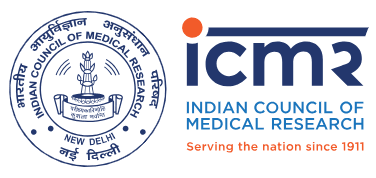Indian Council of Medical Research (ICMR) | UPSC Notes
Nov, 2025
•8 min read
The Indian Council of Medical Research (ICMR) is India’s apex body for the formulation, coordination and promotion of biomedical research. This topic is crucial for the UPSC GS Paper II, GS Paper III and Prelims.
This blog will cover the history, structure, initiatives, achievements, challenges and reforms of the ICMR. Let’s study the topic in detail!
What is ICMR?

The Indian Council of Medical Research is the apex body for biomedical research in India. The institution is under the Ministry of Health & Family Welfare. ICMR plays a central role in public health, disease surveillance, medical innovation and scientific policy.
- It is one of the oldest medical research bodies in the world, serving the nation since 1911.
- It funds, promotes, regulates and conducts research for improving public health.
- It supports medical innovation, diagnostics, vaccines and national health programmes.
Vision of ICMR
- Translating research into action for improving the health of the population.
Mission of ICMR
- Generate, manage and disseminate new knowledge.
- Increase focus on research into the health problems of vulnerable, disadvantaged, and marginalised sections of society.
- Harness and encourage the use of modern biology tools in addressing the health concerns of the country.
- Encourage innovations and translation related to diagnostics, treatment, methods/ vaccines for prevention.
- Inculcate a culture of research in academia, especially medical colleges and other health research institutions, by strengthening infrastructure and human resources.
History and Evolution of ICMR
In the past two decades, ICMR has transitioned from a conventional biomedical research council to a globally recognised institution.
1. Early Years (1911–1947)
- Established as the Indian Research Fund Association (IRFA) in 1911.
- The primary focus is on tropical diseases, nutritional deficiencies, sanitation, and public health threats prevalent in colonial India.
- Laid the foundation for organised biomedical research, including malaria and plague studies.
2. Post-Independence Transition (1948–1990s)
- Renamed as the Indian Council of Medical Research (ICMR) in 1949.
- Expanded mandate to maternal and child health, communicable diseases, nutrition, and epidemiology.
- Supported key government programmes: National Malaria Eradication Programme, TB Control, Kala-azar elimination, HIV/AIDS surveillance.
- Gained global recognition for work in vector-borne diseases, malnutrition, and epidemiological data systems.
3. Modern Scientific Expansion (2000s–Present)
- Major shift towards biotechnology, genomics, AI/ML in disease modelling, precision medicine, and bioinformatics.
- Development of indigenous molecular diagnostics, portable RT-PCR machines, and point-of-care tests.
- ICMR launched IRIS (Integrated Research Information System) to modernise its research ecosystem.
- Establishment of the ICMR Genomics Platform for pathogen sequencing.
- An Extensive Antimicrobial Resistance (AMR) surveillance network across India.
- Advancing intranasal vaccines, DNA vaccines, and mRNA vaccine platforms (new focus since 2023).
Organisational Structure of ICMR
ICMR operates through a well-defined administrative and scientific architecture. The governing body includes:
- President: Union Minister of Health & Family Welfare
- Vice President: Minister of State
- Chairperson: Secretary, Department of Health Research
- Director General (DG): Chief Executive of ICMR
- Scientific Advisory Board (SAB): Advises on technical research domains and national scientific priorities.
Specialised Committees
- Disease-specific committees
- Bioethics committee
- Vaccine development committee
- Clinical trial oversight committee
Major Initiatives & Programmes of ICMR
ICMR runs some of India’s most impactful public health and biomedical research programmes. Studying these programmes is crucial as they link scientific research with national health outcomes.
1. India TB Research Consortium (ITRC): A national platform accelerating India’s goal of TB elimination by 2025.
- Development of next-generation TB vaccines (e.g., M72/AS01 trials)
- Evaluation of rapid molecular diagnostics
- Genomic surveillance of drug-resistant TB
- New drug regimens for MDR/XDR TB
- Operational research to strengthen the NTEP (National TB Elimination Programme)
2. COVID-19 Response Framework: ICMR demonstrated historic leadership during COVID-19. Key achievements:
- Expanded diagnostic network from 1 lab to 3,000+ labs
- Validated and deployed indigenous RT-PCR & antigen kits
- Supported Covaxin development, clinical trials & phase protocols
- Conducted nationwide sero-surveillance
- Collaborated with INSACOG on genomic sequencing
- Developed digital platforms for real-time data reporting
- Established the ICMR COVID-19 BioBank for long-term research
3. National Cancer Registry Programme (NCRP): Established in 1982; provides population-based and hospital-based cancer data. Key roles:
- Tracks incidence, mortality & survival patterns
- Supports the National Programme for Prevention & Control of Cancer
- Works through NCDIR (Bengaluru)
- Provides regional cancer burden estimates for policymaking
4. Tribal Health Research Programme: Addressing health issues in remote and underserved tribal areas.
- 11 Tribal Health Research Centres (THRCs) across India
- Focus on malaria, sickle-cell anaemia, malnutrition, haemoglobinopathies, and genetic diseases
- Community studies on nutrition, maternal health, and infectious diseases
5. NCDIR Registries (Non-Communicable Diseases Information Registries): Developed to support India’s fight against NCDs. Includes registries for:
- Diabetes
- Cardiovascular diseases
- Stroke
- Chronic kidney disease
- Cancer survivorship
- Rare diseases (emerging focus)
Provides evidence for Ayushman Bharat – Health & Wellness Centres planning.
6. One Health Mission: ICMR plays a leading role in developing an integrated disease surveillance system. Focus areas:
- Tracking animal-human-environment interface
- Early detection of zoonotic diseases
- Establishing the National One Health Institute
- Wildlife and livestock pathogen monitoring
- Joint initiatives with ICAR and MoEFCC
7. National Guidelines for Stem Cell Research
Developed with the Department of Biotechnology (DBT). Covers:
- Permissible vs. restricted stem cell research
- Clinical trial approval processes
- Use of embryonic, adult, and induced pluripotent stem cells
- Ethical storage and biobanking
Recent Initiatives of ICMR 2023–2025
1. ICMR–IRIS (Integrated Research Information System)
- End-to-end digital platform for tracking ICMR-funded projects
- Facilitates approvals, ethics reviews, and progress reports
- Ensures transparency, faster clearance, and centralised data management
2. ICMR BioBank Network
- One of the largest multi-site national biobanking systems
- Stores biological samples for infectious diseases, cancer, and NCDs
- Supports precision medicine and research reproducibility
3. AMR (Antimicrobial Resistance) Surveillance Network
- 30+ labs generating national AMR trends
- Supports the National Action Plan on AMR
- Tracks antibiotic resistance in pathogens like E. coli, S. aureus, and K. pneumoniae
4. mRNA Vaccine and Platform Development
ICMR is supporting:
- Indigenous mRNA vaccine technology
- Next-gen vaccine platforms for influenza, TB, and emerging viruses
- National Vaccine Research Centre
5. Digital Health Platforms & AI-Based Disease Modelling
- AI-based dengue and malaria forecasting tools
- COVID-19 predictive modelling
- Real-time epidemiological dashboards
- Mobile apps for field data collection
4. Rare Disease Research Platform
- Genomic profiling of rare diseases
- Newborn screening research
- Indigenous diagnostics for metabolic disorders
5. ICMR Innovation & Startup Support (Medical Device Funding)
Programmes like:
- ICMR-MedTech Device Innovation Fund
- Grants for wearable devices, point-of-care diagnostics, and biosensors
- It supports Atmanirbhar Bharat in the health technology sector.
Key Publications by ICMR
These flagship publications are referenced in national health policy and are often asked in UPSC Prelims.
- ICMR Annual Report
- India: State-Level Disease Burden Reports (2017, 2020)
- ICMR–NIN Dietary Guidelines for Indians
- National Ethical Guidelines for Biomedical & Health Research (2023)
- TB Surveillance & India TB Report Contributions
- Malaria and Dengue Surveillance Reports
- National Guidelines for Stem Cell Research
- ICMR COVID-19 Sero-Survey Reports
- Research Policy Briefs (Health, Nutrition, Vaccines, NCDs)
Must read: National Cancer Awareness Day 2025
International Collaborations of ICMR
ICMR maintains strong global partnerships to advance biomedical research, strengthen public health systems, and promote knowledge exchange.
- World Health Organisation (WHO): Joint work on disease surveillance, polio eradication, NCDs, and pandemic preparedness.
- National Institutes of Health (NIH), USA: Collaborations in genomics, vaccine research, infectious diseases, and clinical trials.
- Coalition for Epidemic Preparedness Innovations (CEPI): Partnerships for vaccine development, epidemic response, and rapid diagnostics.
- Bill & Melinda Gates Foundation (BMGF): Support for maternal and child health studies, TB elimination, and health system innovations.
- European Union (EU) Scientific Programmes: Joint research on AMR, precision medicine, and biotechnology.
Also read: World Immunisation Day 2025: Theme, Objectives, and India’s Immunisation Programmes for UPSC
UPSC Prelims PYQ on Health Sector
QUESTION 1
GS
Medium
Social Issues & Schemes
Prelims 2024
With reference to the 'Pradhan Mantri Surakshit Matritva Abhiyan', consider the following statements:
- This scheme guarantees a minimum package of antenatal care services to women in their second and third trimesters of pregnancy and six months post-delivery health care service in any government health facility.
- Under this scheme, private sector health care providers of certain specialities can volunteer to provide services at nearby government health facilities.
Which of the statements given above is/are correct?
Select an option to attempt
Challenges Faced by ICMR
The Standing Committee on Health and Family Welfare (2023) noted that in 2021-22, India's total spending on health research accounted for 0.02% of the country's GDP. Despite its large mandate, ICMR struggles with systemic funding shortfalls. Let’s study the roadblocks in detail!
- Funding Constraints for Large-Scale Research: ICMR’s budget is limited compared to global agencies like NIH or UK MRC.
- Shortage of Skilled Researchers: India faces a deficit of trained epidemiologists, biostatisticians, molecular biologists, and public health scientists.
- Dependence on Imported Technology & Equipment: A large share of diagnostic machines, genomic sequencers, and research-grade reagents is imported. COVID-19 RT-PCR kits and reagents initially had to be sourced from abroad, delaying early ramp-up.
- Delays in Clinical Trials & Regulatory Clearances: Trials for new TB vaccines and cancer drugs often take longer due to clearances from multiple committees and ethics boards.
- Need for Strong Data Integration Across States: Health data is fragmented across states, ministries, and institutions.
- Limited Public Awareness About Research Outcomes: ICMR’s research often does not reach frontline health workers or the general public.
Prepare this important current topic here: What is Nipah Virus: Everything You Need to Know
UPSC Mains Practice Question on ICMR
Discuss the evolution of the Indian Council of Medical Research (ICMR) and its significance in shaping India’s public health system.
Evaluate Your Answer in 60 SecondsWay Forward
“The future of public health will belong to nations that invest in science today.” — WHO Director-General
To strengthen ICMR’s global leadership and ensure India’s preparedness for future health challenges, a forward-looking reform strategy is essential.
- Substantially increase investment in biomedical research
- Promote the indigenous development of scientific equipment
- Establish fast-track clinical trial & regulatory mechanisms
- Strengthen partnerships with the private sector & health-tech startups
- Expand genomics & AI-based disease modelling
- Enhance one health infrastructure
- Integrate national health data platforms
Start your UPSC Preparation with SuperKalam
Your Personal AI Mentor that teaches, instantly evaluates handwritten answers & builds daily discipline. Cover 100 of % Prelims & Mains syllabus to add magic in your preparation.
Click the banner below:
Crack UPSC with your Personal AI Mentor
An AI-powered ecosystem to learn, practice, and evaluate with discipline
Download the SuperKalam App Now

